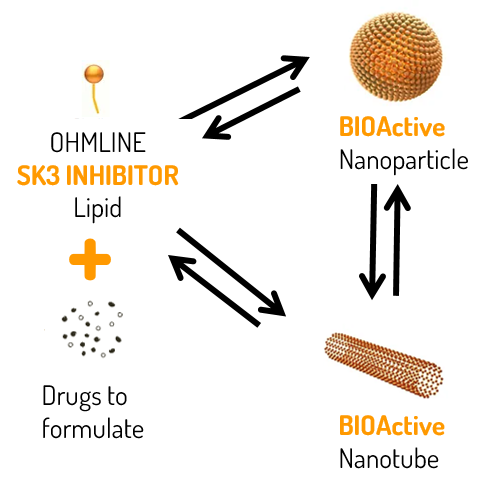
Lifesome Therapeutics’ project, nanoBACTair, is set within a context where antimicrobial resistance poses a global health threat, hindering the effective treatment of bacterial respiratory infections and compromising procedures such as routine surgeries, transplants, and cancer therapies. The main challenge in treating respiratory infections of bacterial origin lies not only in the emergence of antibiotic-resistant strains, but also in the limited number of available antibiotic agents, their low bioavailability due to oral or intravenous administration, adverse side effects, and the body’s own physiological barriers. This highlights the urgent need for more efficient, safe, and sustainable drug delivery systems.
The innovation of the project lies in the development of Ohmline, a therapeutic lipid nanovector with a unique design that combines two functions: serving as an encapsulation system for controlled drug release, and exerting intrinsic antimicrobial therapeutic activity that enhances its effectiveness. This technology enables the formulation of nanoparticles with an exceptional range of antibiotics of different sizes and solubilities, such as ciprofloxacin, gentamicin, or amoxicillin, achieving high levels of encapsulation and therapeutic efficacy.
The project is supported by Bac3Gel, which contributes its 3D model MU3GEL® to simulate the pulmonary environment and assess the effectiveness of Ohmline. Ohmline has the potential to transform the treatment of respiratory infections and extend to inflammatory or oncological diseases. Its ability to improve the bioavailability of therapeutic agents, reduce side effects, increase efficacy, and combat bacterial resistance positions it as a key tool in personalized medicine and public health.
In this context, the project received favorable funding approval in December 2024 from the CDTI, under the “Multi-Country” program, with a grant of over €488,000. This will boost its development and international projection in line with the European Union’s strategic priorities.

We highlight the ability of Evolution’s team to communicate with international and multidisciplinary teams, as well as their ability to identify possible improvements in the consortia and the tasks initially proposed.



